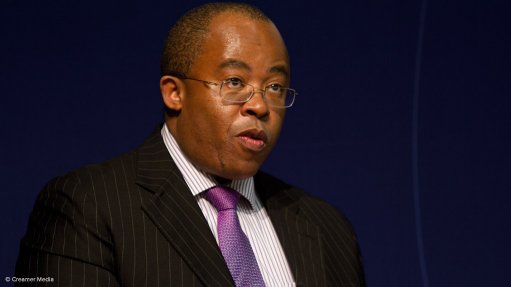
Incoming joint Sasol CEO Bongani Nqwababa
Photo by: Duane Daws
Incoming joint Sasol CEO Bongani Nqwababa believes “simplistic” correlations of the company’s performance to the oil price will become less relevant in coming years as the revenue and profit contribution of its chemicals business rises in line with its large North American expansion projects.
Nqwababa, who participated in a media roundtable dedicated specifically to the company’s chemicals business, noted that the group had already been reclassified as a chemicals company by the JSE, which moved its listing from the oil and gas sector in March last year to the basic materials sector.
Also listed on the New York Stock Exchange, Sasol expected its classification on the Morgan Stanley Capital International index to probably change in future to reflect the rising chemicals contribution at a company best known for its production of petrol and diesel from coal and gas, using the Fischer-Tropsch technology.
During the group’s 2015 financial year, the revenue contribution from base and performance chemicals was R105-billion, or 57% of overall turnover, while the division’s operating profit contribution was R22.9-billion, or 49%. Sasol was due to report interim results on March 7.
Nqwababa, who together with Stephen Cornell, would take over from CEO David Constable on July 1 said that Sasol’s portfolio would, in future, “lean more towards chemicals”.
“Despite that, we still see the simplistic analysis of seeing Sasol as a perfect correlation with the oil price, which, in the case of chemicals, is not a simple one-to-one ratio. But we obviously need to do a lot of communication to work on that.”
There was a lag, for instance, in the reaction of chemicals prices to a drop in the oil price, while chemicals margins did not generally reflect the full decline in the price of oil. “There is also much more resilience in terms of performance chemicals than is the case for base chemicals.”
Executive VP for the chemicals business Fleetwood Grobler said the restructured chemicals business, which had consolidated around 12 separate units, was poised for growth under the group’s “dual regional strategy in Southern Africa and North America”.
The company was currently investing $8.9-billion in a new ethane cracker in Lake Charles, Louisiana, which was scheduled for completion in 2018. In addition, it was participating in a high-density polyethylene joint project with INEOS, which was on track for completion in 2016.
Sasol stressed that it was not planning to merely increase the output of base products, such as ethylene or polyethylene, in the US, but had configured the project to produce various performance chemicals that were in high demand.
Grobler said the Lake Charles Chemical Project (LCCP) would establish the US facility as an integrated, multi-asset site similar to the group’s Secunda complex, in South Africa, where it had recently invested to further increase the capacity of its chemicals and wax facilities.
The chemicals business was currently producing 5-million tons yearly, but would increase output by a further 2-million tons once the Louisiana projects were completed.
Sasol’s North American operations contributed 10% to turnover in 2014, which would rise to 30% after the completion of the LCCP. In 2015, Sasol’s North American turnover was R27-billion.